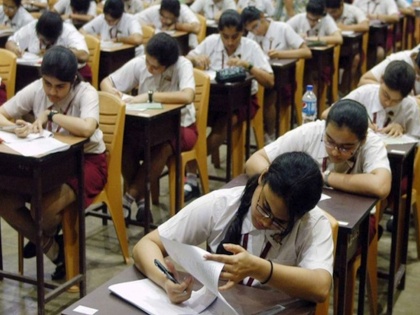Cabinet greenlights overhaul of Education Policy after 34 years
By Lokmat English Desk | Published: December 23, 2023 01:19 PM2023-12-23T13:19:31+5:302023-12-23T13:19:59+5:30
In a historic move, the cabinet has approved a significant revamp of the education policy, marking the first major ...

Cabinet greenlights overhaul of Education Policy after 34 years
In a historic move, the cabinet has approved a significant revamp of the education policy, marking the first major change in 34 years. The New Education Policy introduces a slew of reforms, reshaping the structure and dynamics of the educational system.
Key Features of the New Education Policy:
Foundational Stage (5 Years):
Nursery - Commencing at 4 Years
Jr KG - Starting at 5 Years
Sr KG - Initiating at 6 Years
Std 1st - Beginning at 7 Years
Std 2nd - Starting at 8 Years
Preparatory Stage (3 Years):
Std 3rd - At 9 Years
Std 4th - At 10 Years
Std 5th - At 11 Years
Middle Stage (3 Years):
Std 6th - At 12 Years
Std 7th - At 13 Years
Std 8th - At 14 Years
Secondary Stage (4 Years):
Std 9th - At 15 Years
Std SSC - At 16 Years
Std FYJC - At 17 Years
STD SYJC - At 18 Years
Board exams will be conducted only in the 12th class. MPhil programs will be discontinued, replaced by a 4-year college degree. The 10th board exams will be eliminated. Education up to the 5th standard will be imparted in mother tongue, local language, or national language, with English and other languages as subjects. Semester-based examinations introduced from 9th to 12th class. Schooling structured under the 5+3+3+4 formula.
College degrees will be of 3 or 4 years. The first year grants a certificate, the second a diploma, and the third confers a degree. A 4-year degree for those pursuing higher education, allowing direct admission to MA and subsequent PhD. Flexibility for students to pursue additional courses during ongoing programs. Graded autonomy introduced in higher education institutions, including academic, administrative, and financial autonomy. Launch of e-courses in regional languages, development of virtual labs, and the establishment of a National Educational Scientific Forum (NETF).
This groundbreaking reform impacts all institutions—government, private, and deemed—with standardized rules for 45,000 colleges across the country. The aim is to achieve a 50 percent gross enrollment ratio in higher education by 2035. Stay tuned for further updates on this transformative development in the education sector.
Open in app